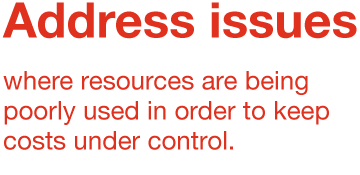
What is the current position on IFRS 17 and what action should you take?
One thing is certain: the global accounting standard will come into effect in January 2022. Given the huge time pressure for developing a new accounting framework that requires greater granularity and more interaction between finance and actuarial systems, many insurers have to accept the need for workarounds when re-organising their IT landscapes. The extra year the IASB is offering for implementing IFRS 9 and IFRS 17 provides an opportunity to rethink the current roadmap and consider more effective ways to implement them.
But the deferral could also whet appetites for significantly extending the scope of the project: spending more money, bringing in new people with new ideas to question decisions or burning the ones who worked on the topics since two years on top of their daily jobs.
This white paper adds another point of view to this discussion. It shows how to maximise the value of the extra year without spending significantly more money.
The delay will require resources. Invest them smart.



Take a smart approach. Not a more expensive one.
One more year for implementation. Time to overhaul and restructure everything? Absolutely not. We advocate using the additional months to focus on specific goals.
These could include improving alignment with other transformation projects, fixing historical challenges around feeder systems and addressing the lack of knowledge resources. Or analysing and implementing amendments to the standards to gain wider acceptance.
Align with IFRS 9 and IFRS 17
Given the overwhelming impact of IFRS 17, the focus of insurers’ implementation projects has often been on the liability side, with the implications of IFRS 9 for the asset side mostly under the radar. The postponement by the IASB group allows insurers to look again at the most relevant IFRS 9-driven topics and work on robust solutions.
Don’t boil the ocean
Twelve more months might whet your appetite for going for that large holistic finance transformation you’ve always had in mind. But we recommend to avoid a significant increase of implementation cost and instead focus on using the delay to implement IFRS 9/17 in a better and smarter way without spending significantly more money. This is not the time to launch a major transformation, but to implement efficient processes for the future.
How to move on: realistic, efficient next steps
There are a number of areas that may be impacted by the postponement and that should be re-assessed such as how the standards are interpreted, budgets, HR procedures or timing. More time could be assigned to business analysis and interpreting KPIs. Or you could ask whether the extra year allows you to stick to the current budget and what additional regulatory and HR procedures might be needed for your internal resources because of the extension.
What’s certain is that there is no "one and only" roadmap and each case has to be assessed on its merits.
The PwC white paper at a glance
In this white paper we show in greater detail the steps we consider sensible and necessary and what measures need to be taken. Among other things, we will answer the following questions:
- Risks and opportunities. Where are we right now?
- How do we align the company with IFRS 9 and 17?
- What are the historical problems that should be fixed now?
- How can we use the deferral to generate added value?
- What specific steps should your company consider now?
Review of our Round Table

IFRS 17 Round Table – PwC Munich
In our PwC office in Munich we had a successful round table meeting where almost all of the German insurance companies next to subsidiaries from international insurance groups came together and discussed intensely about their status and experiences on IFRS 17.
Contact us



Partner, UK Insurance Leader and Global IFRS 17 Lead, PwC United Kingdom
Tel: +44 (0)7525 299694
Contact us










